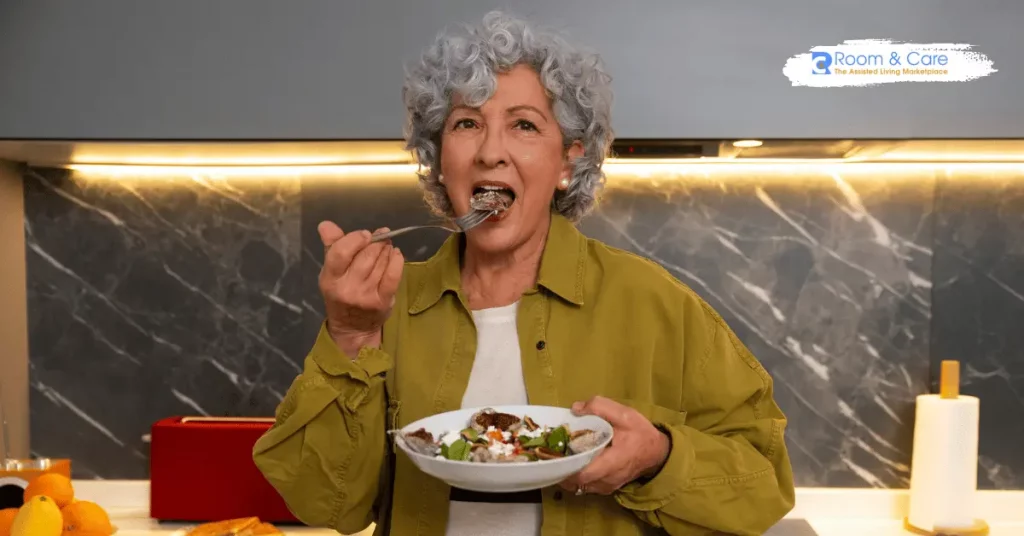

Maintaining a balanced diet is crucial for everyone, but it becomes even more important as we age. Healthy meals for the elderly are essential for maintaining energy, boosting immunity, and supporting overall physical and mental health. As seniors face changing nutritional needs, meal planning takes on a significant role in ensuring they enjoy flavorful, nutrient-dense meals that cater to their specific health requirements. In this comprehensive guide, we’ll explore how to create healthy meals for elderly individuals, the benefits of proper nutrition, and practical strategies to overcome common challenges.
As the body ages, metabolism slows down, muscle mass decreases, and bone density may decline. Seniors require meals that are nutrient-dense but lower in calories to support these changes. Providing healthy meals helps prevent malnutrition, which is a common concern among elderly individuals.
The right diet can reduce the risk of chronic diseases such as diabetes, heart disease, and osteoporosis. It can also improve cognitive function, delay the progression of Alzheimer’s disease, and enhance overall quality of life.
Creating balanced meals for seniors involves incorporating key nutrients to support their health. Here’s a breakdown of what to include:
Protein is essential for preserving muscle mass and strength. Options include:
Whole grains are rich in fiber, which supports digestive health and regulates blood sugar levels. Examples include:
A colorful variety of fruits and vegetables provides essential vitamins, minerals, and antioxidants. Some excellent choices are:
Incorporating healthy fats into meals can support heart health and cognitive function. Sources of healthy fats include:
Staying hydrated is just as important as eating well. Encourage seniors to drink water, herbal teas, or soups throughout the day to avoid dehydration, which can cause fatigue, confusion, and other health issues.

Every senior has unique dietary preferences, medical conditions, and nutritional requirements. Work with a healthcare provider or dietitian to create a personalized plan.
Seniors often have smaller appetites, so serving smaller, nutrient-rich meals throughout the day can help them get the nutrition they need without feeling overwhelmed.
Taste buds can become less sensitive with age, leading to a preference for stronger flavors. Use herbs, spices, and natural seasonings to make meals flavorful without relying on salt.
If chewing is difficult, opt for softer foods like mashed potatoes, steamed vegetables, or smoothies. Foods can also be cut into smaller pieces for easier consumption.

What is the best diet for elderly individuals?
A balanced diet emphasizing lean proteins, whole grains, healthy fats, fruits, and vegetables is ideal.
How can seniors maintain a healthy weight?
Focus on nutrient-dense, lower-calorie foods. Regular light exercise, such as walking, can also help maintain a healthy weight.
Are supplements necessary for seniors?
Supplements may be needed to address specific deficiencies like calcium, vitamin D, or B12, but it’s always best to consult a healthcare provider.
Providing nutritious meals is just one part of supporting seniors’ well-being. If you’re exploring options for professional care, Room and Care offers a seamless way to connect directly with the best-assisted living facilities, memory care centers, and more—without the hassle of referral fees or intermediaries. This ensures affordability and transparency while prioritizing quality care for your loved ones.
Caregivers play an integral role in ensuring elderly individuals receive proper nutrition. By understanding their preferences, accommodating medical needs, and planning enjoyable meals, caregivers can help seniors maintain a healthy and fulfilling lifestyle.
Simple steps like meal prepping, incorporating family favorites, and involving seniors in cooking activities can also foster a positive relationship with food.
Healthy meals for the elderly are about more than just sustenance; they’re about promoting longevity, vitality, and happiness in the later stages of life. By understanding their unique nutritional needs and creating meals that cater to their preferences and restrictions, we can empower seniors to thrive.
To explore how Room and Care can simplify your search for quality care options. Together, let’s ensure that seniors receive the nourishment and support they deserve for a vibrant, fulfilling life.